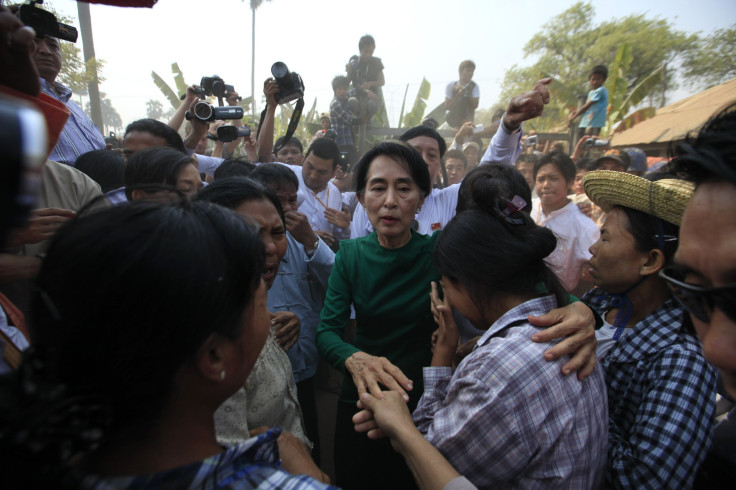Land Seizure In Myanmar Continues Despite Reforms, Government Faces Internal And External Pressure To Develop Land Policies

With their country undergoing political and economic reforms, Myanmar farmers have finally found their voice in protesting against rampant land grabbing under the former junta that has continued under the current government. Developing a set of clear and complete land policies is now critical, as Myanmar’s leaders face both internal and external pressure on that front.
On Aug. 19 and 20, hundreds of farmers protested in Yangon, Myanmar’s commercial center, to demand amendments to the 2012 land reform law, according to the Bangkok Post. The law, enacted by the civilian government, set up a complicated process for farmers to seek compensation that depends on the farmers having paperwork showing that they were using the land, even though record keeping is poor in the country.
“Land disputes are common because of the absence of written titles, a situation that was widely exploited by the military government,” Christian Lewis, Southeast Asia expert for the Eurasia Group, a leading global political risk research and consulting firm, said in an email to the International Business Times.
The former government took ownership of all land, and sold off huge swaths of farmland and valuable mining areas to cronies and military-backed conglomerates. Despite military generals giving up some of their power since 2011, land seizure has not stopped. Now, under the reform government, some farmers are finally able to speak out.
“There were no complaints from farmers under the previous government, and I don’t need to tell you why,” said Shwe Thein, chair of the Land Core Group, one of a broader network of NGOs called the Food Security Group. But with the transition to democratic rule, “the issue is now arising.”
Protests are especially loud in resource-rich areas, where citizens are displaced by mining projects, such as the one at Letpadaung Mountain. In 2010, the government confiscated nearly 8,000 acres of land to expand the project, jointly funded by the Chinese and Myanmar's military. Clashes took place from late last year into this year between protesters and authorities.
With public pressure on the rise, the government is forced to give land confiscation more consideration and it has created high-profile commission to do that. Multiple reports have been issued, but the commission has taken little action, despite leaders proclaiming the issue a top priority.
“Land ownership issues, for example, are extremely complex,” President Thein Sein said in a July 15 speech at Chatham House during a visit to London, according to the Bangkok Post. “As part of our drive to foster growth for all the people of Myanmar, we will develop clear, fair and open land policies.”
Besides respecting farmers’ property ownerships, clear land policies are also essential for Myanmar’s continued progress in economic development, and its ability to attract foreign investment.
“The government faces a tricky balancing act," Lewis told the IBTimes.
“Internally," he said, "it must weigh competing demands from citizens who have grown comfortable exercising their rights. Externally, the government must accommodate citizens’ rights in an effort to show donor countries that Myanmar’s liberalizing political trajectory continues, while also satisfying foreign investors, whose concerns about contract sovereignty are rising due to signals that several large (predominantly Chinese) investments may be forcibly renegotiated.”
© Copyright IBTimes 2024. All rights reserved.











